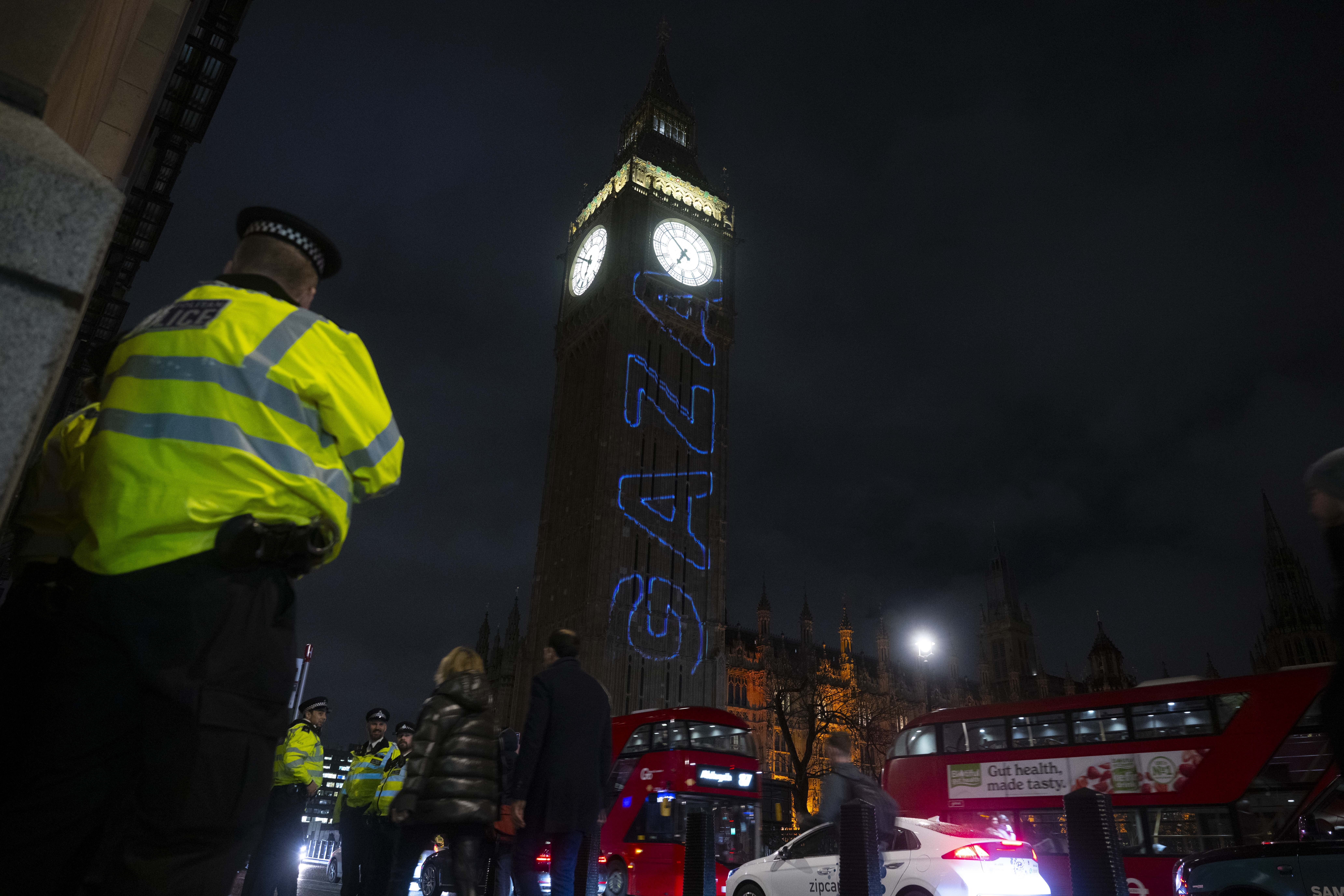Cooler heads must prevail in order to halt the growing threat to our politicians’ safety
Editorial: If our MPs do not lower the temperature at such a sensitive time, they will allow good people to be driven out of politics

Rishi Sunak is right to argue that a “dangerous signal” that “intimidation works” was sent in parliament last week when Sir Lindsay Hoyle, the Commons speaker, judged that Labour MPs could face physical threats unless the party’s amendment on a ceasefire in Gaza and Israel was put to a vote. The crossing of this line – a worrying development – was partially obscured by the Commons chaos and the controversy that followed, which left the speaker fighting to keep his job.
The justified concern expressed by Mr Sunak and his ministers has also been eclipsed by the Conservatives’ latest unforced error – the inflammatory assertion by Lee Anderson, the party’s former deputy chair, that Sadiq Khan, the Labour mayor of London, is under the control of “Islamists”.
The prime minister’s warning that our democracy “cannot bend to the threat of violence and intimidation or fall into polarised camps who hate each other” would carry more weight were his party as serious about eliminating Islamophobia as it is about antisemitism. Mr Sunak’s statement on Sunday referred to an “explosion in prejudice and antisemitism” since the 7 October attack on Israel, but, remarkably, did not mention the rise in attacks aimed at Muslims. As The Independent reports today, the number of Islamophobic incidents logged has reached a record high.
Regrettably, the government’s approach does not appear to be even-handed, as we argued yesterday. Although Mr Anderson rightly lost the Tory whip (eventually), ministers have declined to label his remarks Islamophobic or racist.
While the speaker was wrong to prioritise Labour’s amendment on a ceasefire in Gaza over the Scottish National Party’s motion on the day when the SNP staged the debate, he was right to express concern about the growing threat to the safety of MPs.
Although this is not a new concern, it has undoubtedly got worse since the attack by Hamas. The threat is not just from Islamist extremists, one of whom killed the Tory MP Sir David Amess, but from the far right, as the murder of the Labour MP Jo Cox demonstrated.
Many MPs have stepped up their security arrangements, and it emerged on Sunday that three female politicians, including both Tory and Labour figures, now have state-provided bodyguards and chauffeur-driven cars. With the police already under enough pressure, private security firms have been called in, while the Royal and VIP Executive Committee (Ravec), responsible for the security of the royal family and senior politicians, is assessing the enhanced threat to MPs.
There is a strong case for ensuring a common police response to concerns over MPs’ security across the country, which MPs complain is currently lacking. It should protect their homes and offices, which are now sadly regarded as fair game by some protesters.
John Woodcock (now Lord Walney), a crossbench peer and former Labour MP, who is reviewing the problem of political violence for the government, is proposing that the police be given wider powers to break up protests outside democratic venues, including MPs’ offices and council buildings. He argues that the “aggressive intimidation of MPs” is having a “corrosive effect” on how they behave.
While some of his ideas should be implemented, the government should reject his plan for expedited public space protection orders to be extended to parliament itself. If people were denied the right to protest peacefully at the Palace of Westminster, democracy would be undermined.
As last week’s shameful events in parliament showed, the temptation for all parties to play politics in an election year is strong. Their leaders must now learn lessons and rise above such things. They must ensure that their MPs choose their words carefully rather than trying to stoke divisions and make the country even more polarised. Although populists such as Liz Truss and Suella Braverman might want Britain to become like America, it is different and should remain so.
Indeed, it is clear that we have already reached a terrible state of affairs now that Mike Freer, a justice minister whose Finchley and Golders Green constituency has a large Jewish population, has decided to stand down at the election following death threats, abuse, an arson attack on his office, and a narrow escape from Amess’s killer.
The abuse to which MPs are subjected on social media, particularly the misogynistic attacks on women, is deterring some people from entering politics. If our politicians do not lower the temperature at such a sensitive time, they will deter good people from standing as MPs and drive more of them out of politics. They should now put the health of our democracy above petty party political point-scoring.
Join our commenting forum
Join thought-provoking conversations, follow other Independent readers and see their replies
Comments
Bookmark popover
Removed from bookmarks